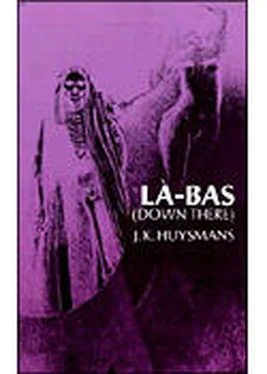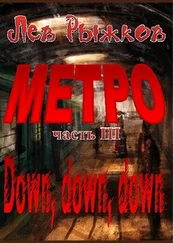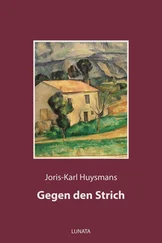Joris-Karl Huysmans - Down There (Là-Bas)
Здесь есть возможность читать онлайн «Joris-Karl Huysmans - Down There (Là-Bas)» весь текст электронной книги совершенно бесплатно (целиком полную версию без сокращений). В некоторых случаях можно слушать аудио, скачать через торрент в формате fb2 и присутствует краткое содержание. Жанр: Классическая проза, на английском языке. Описание произведения, (предисловие) а так же отзывы посетителей доступны на портале библиотеки ЛибКат.
- Название:Down There (Là-Bas)
- Автор:
- Жанр:
- Год:неизвестен
- ISBN:нет данных
- Рейтинг книги:3 / 5. Голосов: 1
-
Избранное:Добавить в избранное
- Отзывы:
-
Ваша оценка:
- 60
- 1
- 2
- 3
- 4
- 5
Down There (Là-Bas): краткое содержание, описание и аннотация
Предлагаем к чтению аннотацию, описание, краткое содержание или предисловие (зависит от того, что написал сам автор книги «Down There (Là-Bas)»). Если вы не нашли необходимую информацию о книге — напишите в комментариях, мы постараемся отыскать её.
Down There (Là-Bas) — читать онлайн бесплатно полную книгу (весь текст) целиком
Ниже представлен текст книги, разбитый по страницам. Система сохранения места последней прочитанной страницы, позволяет с удобством читать онлайн бесплатно книгу «Down There (Là-Bas)», без необходимости каждый раз заново искать на чём Вы остановились. Поставьте закладку, и сможете в любой момент перейти на страницу, на которой закончили чтение.
Интервал:
Закладка:
"You mustn't talk about that," said his wife, straightening the pillows at his back. "If you keep working yourself up, you will never get well."
"Quite right," he said, resigned, "but what would you have? I shall still be a man with a grievance, whom nothing can pacify," and he smiled at his wife who was bringing him a spoonful of the potion to swallow.
The doorbell rang. Mme. Carhaix went to answer it and a hilarious and red-faced priest entered, crying in a great voice, "It's Jacob's ladder, that stairway! I climbed and climbed and climbed, and I'm all out of breath," and he sank, puffing, into an armchair.
"Well, my friend," he said at last, coming into the bedroom, "I learned from the beadle that you were ill, and I came to see how you were getting on."
Durtal examined him. An irrepressible gaiety exuded from this sanguine, smooth-shaven face, blue from the razor. Carhaix introduced them. They exchanged a look, of distrust on the priest's side, of coldness on Durtal's.
Durtal felt embarrassed and in the way, while the honest pair were effusively and with excessive humility thanking the abbé for coming up to see them. It was evident that for this pair, who were not ignorant of the sacrileges and scandalous self-indulgences of the clergy, an ecclesiastic was a man elect, a man so superior that as soon as he arrived nobody else counted.
Durtal took his leave, and as he went downstairs he thought, "That jubilant priest sickens me. Indeed, a gay priest, physician, or man of letters must have an infamous soul, because they are the ones who see clearly into human misery and console it, or heal it, or depict it. If after that they can act the clown-they are unspeakable! Though I'll admit that thoughtless persons deplore the sadness of the novel of observation and its resemblance to the life it represents. These people would have it jovial, smart, highly coloured, aiding them, in their base selfishness, to forget the hag-ridden existences of their brothers.
"Truly, Carhaix and his wife are peculiar. They bow under the paternal despotism of the priests-and there are moments when that same despotism must be no joke-and revere them and adore them. But then these two are simple believers, with humble, unsmirched souls. I don't know the priest who was there, but he is rotund and rubicund, he shakes in his fat and seems bursting with joy. Despite the example of Saint Francis of Assisi, who was gay-spoiling him for me-I have difficulty in persuading myself that this abbé is an elevated being. It's all right to say that the best thing for him is to be mediocre; to ask how, if he were otherwise, he would make his flock understand him; and add that if he really had superior gifts he would be hated by his colleagues and persecuted by his bishop."
While conversing thus disjointedly with himself Durtal had reached the base of the tower. He stopped under the porch. "I intended to stay longer up there," thought he. "It's only half-past five. I must kill at least half an hour before dinner."
The weather was almost mild. The clouds had been swept away. He lighted a cigarette and strolled about the square, musing. Looking up he hunted for the bell-ringer's window and recognized it. Of the windows which opened over the portico it alone had a curtain.
"What an abominable construction," he thought, contemplating the church. "Think. That cube flanked by two towers presumes to invite comparison with the façade of Notre Dame. What a jumble," he continued, examining the details. "From the foundation to the first story are Ionic columns with volutes, then from the base of the tower to the summit are Corinthian columns with acanthus leaves. What significance can this salmagundi of pagan orders have on a Christian church? And as a rebuke to the over-ornamented bell tower there stands the other tower unfinished, looking like an abandoned grain elevator, but the less hideous of the two, at that.
"And it took five or six architects to erect this indigent heap of stones. Yet Servandoni and Oppenord and their ilk were the real major prophets, the… zekiels of building. Their work is the work of seers looking beyond the eighteenth century to the day of transportation by steam. For Saint Sulpice is not a church, it's a railway station!
"And the interior of the edifice is not more religious nor artistic than the exterior. The only thing in it that pleases me is good Carhaix's aërial cave." Then he looked about him. "This square is very ugly, but how provincial and homelike it is! Surely nothing could equal the hideousness of that seminary, which exhales the rancid, frozen odour of a hospital. The fountain with its polygonal basins, its saucepan urns, its lion-headed spouts, its niches with prelates in them, is no masterpiece. Neither is the city hall, whose administrative style is a cinder in the eye. But on this square, as in the neighbouring streets, Servandoni, Garancière, and Ferrou, one respires an atmosphere compounded of benign silence and mild humidity. You think of a clothes-press that hasn't been open for years, and, somehow, of incense. This square is in perfect harmony with the houses in the decayed streets around here, with the shops where religious paraphernalia are sold, the image and ciborium factories, the Catholic bookstores with books whose covers are the colour of apple seeds, macadam, nutmeg, bluing.
"Yes, it's dilapidated and quiet."
The square was then almost deserted. A few women were going up the church steps, met by mendicants who murmured paternosters as they rattled their tin cups. An ecclesiastic, carrying under his arm a book bound in black cloth, saluted white-eyed women. A few dogs were running about. Children were chasing each other or jumping rope. The enormous chocolate-coloured la Villette omnibus and the little honey-yellow bus of the Auteuil line went past, almost empty. Hackmen were standing beside their hacks on the sidewalk, or in a group around a comfort station, talking. There were no crowds, no noise, and the great trees gave the square the appearance of the silent mall of a little town.
"Well," said Durtal, considering the church again, "I really must go up to the top of the tower some clear day." Then he shook his head. "What for? A bird's-eye view of Paris would have been interesting in the Middle Ages, but now! I should see, as from a hill top, other heights, a network of grey streets, the whiter arteries of the boulevards, the green plaques of gardens and squares, and, away in the distance, files of houses like lines of dominoes stood up on end, the black dots being windows.
"And then the edifices emerging from this jumble of roofs, Notre Dame, la Sainte Chapelle, Saint Severin, Saint Etienne du Mont, the Tour Saint Jacques, are put out of countenance by the deplorable mass of newer edifices. And I am not at all eager to contemplate that specimen of the art of the maker of toilet articles which l'Opéra is, nor that bridge arch, l'arc de la Triomphe, nor that hollow chandelier, the Tour Eiffel! It's enough to see them separately, from the ground, as you turn a street corner. Well, I must go and dine, for I have an engagement with Hyacinthe and I must be back before eight."
He went to a neighbouring wine shop where the dining-room, depopulated at six o'clock, permitted one to ruminate in tranquillity, while eating fairly sanitary food and drinking not too dangerously coloured wines. He was thinking of Mme. Chantelouve, but more of Docre. The mystery of this priest haunted him. What could be going on in the soul of a man who had had the figure of Christ tattooed on his heels the better to trample Him?
What hate the act revealed! Did Docre hate God for not having given him the blessed ecstasies of a saint, or more humanly for not having raised him to the highest ecclesiastical dignities? Evidently the spite of this priest was inordinate and his pride unlimited. He seemed not displeased to be an object of terror and loathing, for thus he was somebody. Then, for a thorough-paced scoundrel, as this man seemed to be, what delight to make his enemies languish in slow torment by casting spells on them with perfect impunity.
Читать дальшеИнтервал:
Закладка:
Похожие книги на «Down There (Là-Bas)»
Представляем Вашему вниманию похожие книги на «Down There (Là-Bas)» списком для выбора. Мы отобрали схожую по названию и смыслу литературу в надежде предоставить читателям больше вариантов отыскать новые, интересные, ещё непрочитанные произведения.
Обсуждение, отзывы о книге «Down There (Là-Bas)» и просто собственные мнения читателей. Оставьте ваши комментарии, напишите, что Вы думаете о произведении, его смысле или главных героях. Укажите что конкретно понравилось, а что нет, и почему Вы так считаете.












